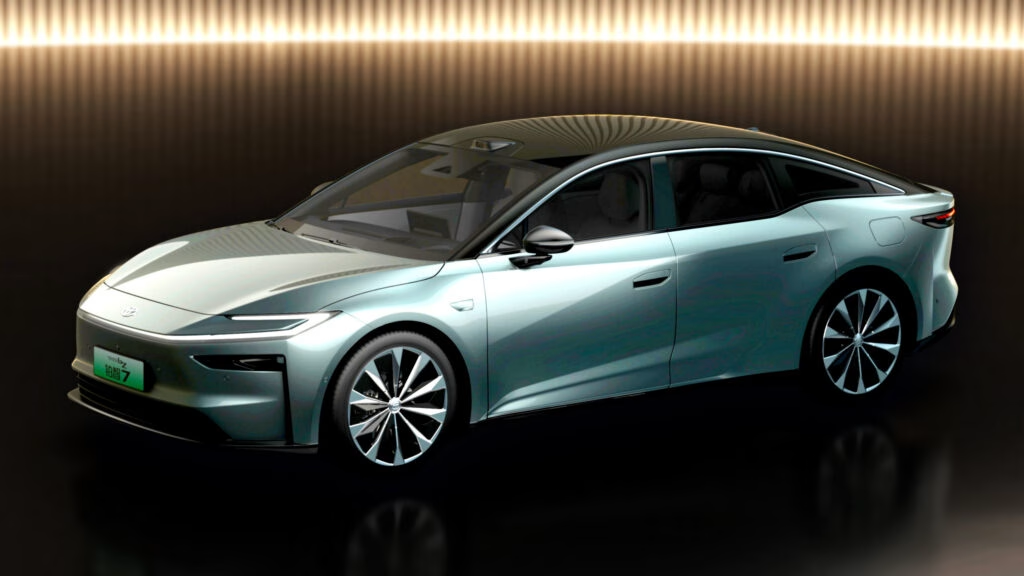Toyota is making waves in the automotive industry, especially with its ambitious plans for the Chinese market. At the recent 2025 Toyota Technology Day held in China, the company unveiled a series of exciting developments that highlight its commitment to innovation, particularly in electric vehicles (EVs) and artificial intelligence (AI). Let’s dive into what Toyota has in store and how it plans to reshape the future of mobility.
### What’s New in Toyota’s EV Strategy?
One of the standout announcements from Toyota was its collaboration with GAC, a joint venture that is set to develop two new platforms specifically for new energy vehicles. These platforms will cater to a range of powertrains, including fully electric, range-extender, and plug-in hybrids. This flexibility is crucial as the market continues to evolve and consumer preferences shift towards more sustainable options.
The first of these platforms is designed for compact to mid-size vehicles, while the second will accommodate larger vehicles. The upcoming bZ7, which will be Toyota’s flagship electric model in China, will utilize the larger platform. This model aims to compete directly with the likes of the Tesla Model S, offering an affordable alternative that could attract a significant customer base.
### How Will AI Transform the Driving Experience?
Toyota is not just focusing on electrification; it’s also looking to enhance the driving experience through AI. The company plans to integrate advanced AI systems into its vehicles, with the goal of creating a “caring butler” in-car assistant by 2026-2027. This assistant is expected to evolve into a “symbiotic partner” by 2028, capable of intuitively responding to user needs. Imagine a vehicle that not only understands your commands but anticipates your preferences—this is the future Toyota envisions.
Moreover, the integration of AI will extend to advanced driver-assistance systems (ADAS) and intelligent cockpits. These innovations will help improve safety and convenience, making driving a more enjoyable experience.
### Collaborations with Tech Giants
To bolster its technological capabilities, Toyota is partnering with major Chinese tech companies like Huawei and Xiaomi. The bZ7 will feature Huawei’s DriveONE powertrain, which integrates the motor, MCU, and inverter into a single unit, streamlining performance and efficiency. Additionally, the vehicle will be equipped with Huawei’s Hongmeng cockpit system, which promises enhanced connectivity and a suite of modern apps.
Xiaomi’s involvement will focus on in-vehicle technology, including audio systems and communication features that enhance interaction between passengers. This collaboration highlights Toyota’s strategy of leveraging local expertise to create vehicles that resonate with Chinese consumers.
### What’s Next for Toyota’s Digital Chassis?
Looking ahead, Toyota is also developing an AI-powered “intelligent digital chassis.” This innovative system will be capable of reading road conditions in real time and adjusting the vehicle’s suspension accordingly. This technology is reminiscent of what Tesla offers in its higher-end models, indicating that Toyota is serious about competing in the premium EV market.
The digital chassis is just one part of a broader AI ecosystem that Toyota plans to implement, which will also encompass research and development, manufacturing, and logistics. However, it remains to be seen whether these advancements will be rolled out globally or remain exclusive to the Chinese market.
### The Road Ahead
As Toyota continues to innovate, it’s clear that the company is positioning itself as a leader in the electric and AI-driven automotive landscape. With plans for new energy vehicles, advanced AI integration, and strategic partnerships with tech giants, Toyota is not just keeping pace with the industry; it’s setting the stage for a transformative future.
The big takeaway? Toyota’s journey into electrification and AI isn’t just about keeping up with trends—it’s about redefining what’s possible in the automotive world. Whether you’re a car enthusiast or just curious about the future of mobility, keep an eye on Toyota. The changes coming down the pipeline could very well shape the way we think about driving in the years to come.

